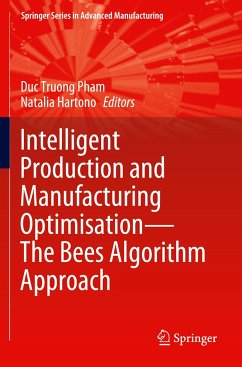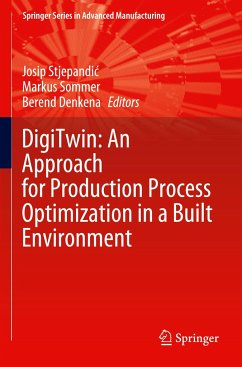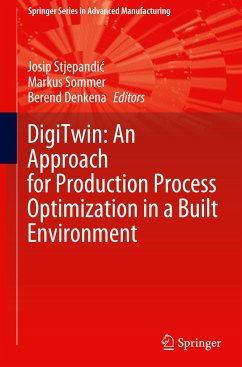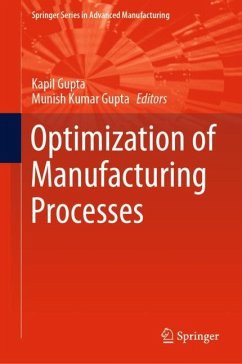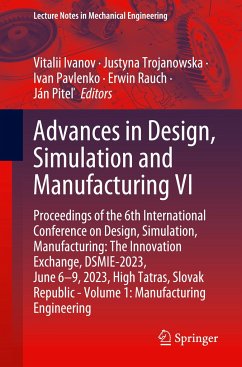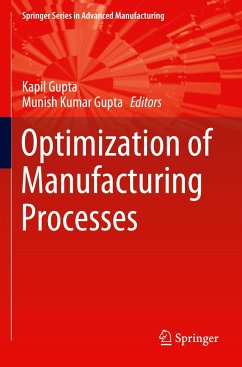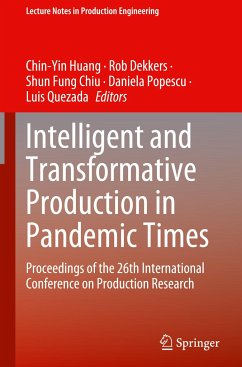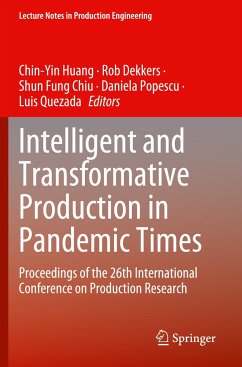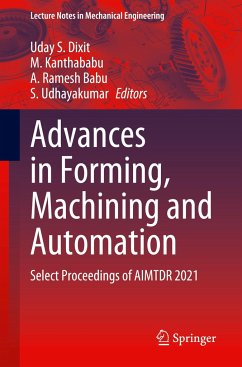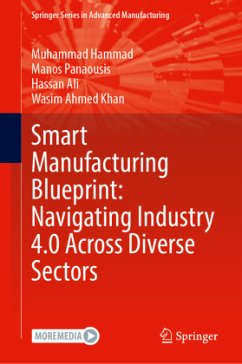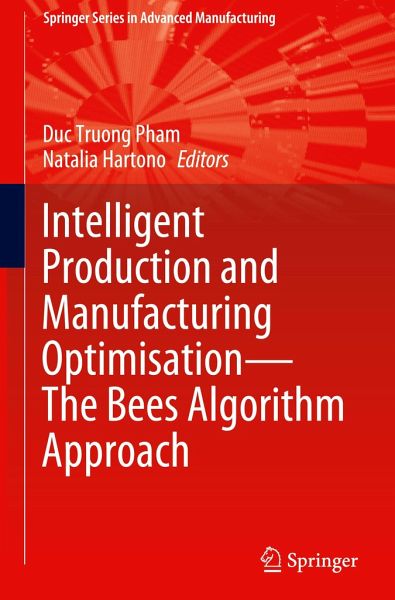
Intelligent Production and Manufacturing Optimisation-The Bees Algorithm Approach

PAYBACK Punkte
65 °P sammeln!
This book is the first work dedicated to the Bees Algorithm. Following a gentle introduction to the main ideas underpinning the algorithm, the book presents recent results and developments relating to the algorithm and its application to optimisation problems in production and manufacturing.With the advent of the Fourth Industrial Revolution, production and manufacturing processes and systems have become more complex. To obtain the best performance from them requires efficient and effective optimisation techniques that do not depend on the availability of process or system models. Such models ...
This book is the first work dedicated to the Bees Algorithm. Following a gentle introduction to the main ideas underpinning the algorithm, the book presents recent results and developments relating to the algorithm and its application to optimisation problems in production and manufacturing.
With the advent of the Fourth Industrial Revolution, production and manufacturing processes and systems have become more complex. To obtain the best performance from them requires efficient and effective optimisation techniques that do not depend on the availability of process or system models. Such models are usually either not obtainable or mathematically intractable due to the high degrees of nonlinearities and uncertainties in the processes and systems to be represented. The Bees Algorithm is a powerful swarm-based intelligent optimisation metaheuristic inspired by the foraging behaviour of honeybees. The algorithm is conceptually elegant and extremely easy to apply. All it needs to solve an optimisation problem is a means to evaluate the quality of potential solutions.
This book demonstrates the simplicity, effectiveness and versatility of the algorithm and encourages its further adoption by engineers and researchers across the world to realise smart and sustainable manufacturing and production in the age of Industry 4.0 and beyond.
With the advent of the Fourth Industrial Revolution, production and manufacturing processes and systems have become more complex. To obtain the best performance from them requires efficient and effective optimisation techniques that do not depend on the availability of process or system models. Such models are usually either not obtainable or mathematically intractable due to the high degrees of nonlinearities and uncertainties in the processes and systems to be represented. The Bees Algorithm is a powerful swarm-based intelligent optimisation metaheuristic inspired by the foraging behaviour of honeybees. The algorithm is conceptually elegant and extremely easy to apply. All it needs to solve an optimisation problem is a means to evaluate the quality of potential solutions.
This book demonstrates the simplicity, effectiveness and versatility of the algorithm and encourages its further adoption by engineers and researchers across the world to realise smart and sustainable manufacturing and production in the age of Industry 4.0 and beyond.



